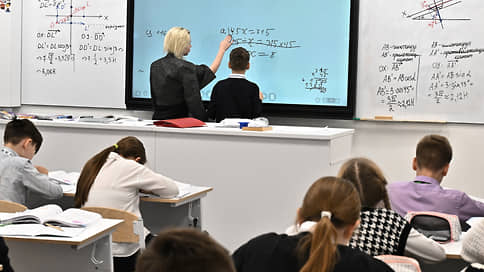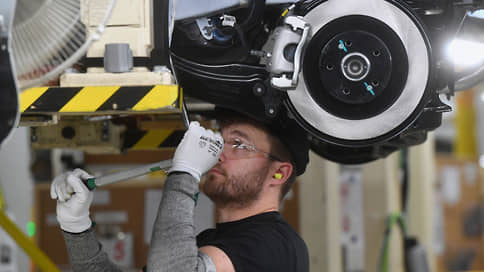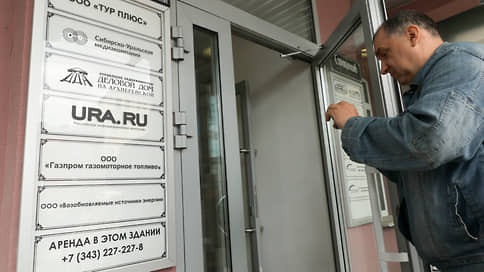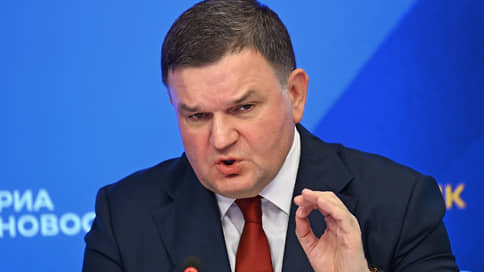Wounds are preparing a network for talented schoolchildren

The Russian Academy of Sciences (RAS) is preparing a new stage of its project to cooperate with schools. She intends to combine existing educational organizations into one network with in -depth study of subjects and, based on them, develop experimental pedagogical approaches. The Ministry of Education has already prepared the legislative execution of the initiative. As Kommersant found out, first this approach is tested in ten institutions, and by 2040 the network of basic schools of the Russian Academy of Sciences should spread to all regions of the country. The achievements of this network are supposed to be transferred to ordinary secondary schools.
On Tuesday, June 3, the Ministry of Education published a draft resolution on the development, testing and implementation of experimental school programs. They suggest in-depth study of mathematics, natural scientific and humanitarian subjects. The scientific and methodological center of the Russian Academy of Sciences will prepare these programs, and they will teach them at the basic schools of the Academy.
Project « Basic Schools of the Russian Academy of Sciences » He was launched in 2018. Within its framework, the Academy of Sciences collaborates with educational organizations. It is assumed that talented schoolchildren in depth study profile subjects under the guidance of scientists from the Russian Academy of Sciences – for « orientation to build a successful career in the field of science and high technology. » Now in 32 regions of the Russian Federation there are 108 basic schools.
Representatives of the Russian Academy of Sciences explained to Kommersant that the decision was developed in connection with the reformatting of the project of basic schools. The new concept implies the creation of a network of such schools « working on unified principles under the scientific, methodological and methodological guidance of the Russian Academy of Sciences. » Experimental educational programs mentioned in the resolution will be developed and implemented in them. The network should be fully earned by 2040. Its main task is to increase the integration of science and education « by building an effective system of interaction between scientific organizations, universities, and basic schools of the Russian Academy of Sciences. » After this, the network will also be able to use ordinary secondary schools.
The first stage of the experiment will unite ten schools from seven regions of the Russian Federation, including Crimea and DPR. It is assumed that as the project develops, at least one such educational institution will appear in each region of the Russian Federation. “Education in schools included in the new stage of the project will be carried out according to the programs that have incorporated the best and proved the effectiveness of the methodology,” Kommersant said in the press service of the Russian Academy of Sciences. “It is also provided for by children of educational and research activities. As a result, schoolchildren must learn to formulate hypotheses, choose ways to verify them, conduct experiments, analyze data and draw independent conclusions. This approach to learning will allow not only to hand over the exam or win in the Olympiads. The main thing is that it will make it possible to reveal the potential of children, to start a career in science and high technologies. The purpose of the project is to form personnel potential for Russian science. ”
Oleg Fedorov, professor of the Institute of Education of the Higher School of Education, indicates that the role of RAS in educational policy is being intensified every year, including at the initiative of the Academy: « Expertise of school textbooks, basic schools are vivid examples of such activities. » However, the expert doubts that outstanding scientists will be good as teachers and authors of materials for schoolchildren. “Children need a special filter through which ideas about reality will be broadcast. He must take into account psychophysiological characteristics, features of the perception of information, ”explains Mr. Fedorov. However, he admits that “obviously talented schoolchildren” who do not need to be motivated to study – rather, it is necessary to provide them with maximum opportunities for scientific development. “Therefore, for such schools, programs compiled by RAS may have more success. But you need to be very careful when trying to broadcast such materials to ordinary children and in this case to help the help of qualified teachers and methodologists, ”the expert concludes.





/s3/static.nrc.nl/images/gn4/data133280221-bb4cba.jpg)

